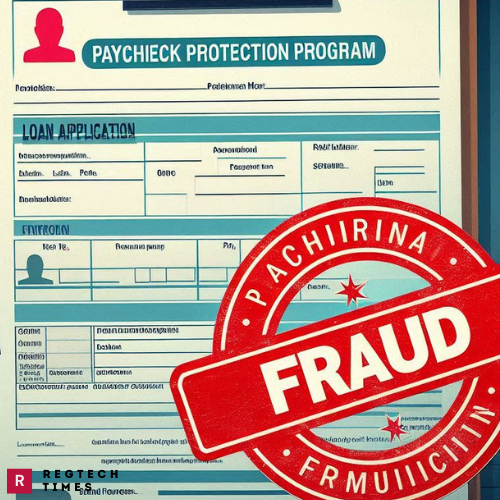In a significant legal development, Jameela Gross, a 28-year-old resident of Boston, has pleaded guilty to wire fraud charges in connection with a scheme to fraudulently obtain funds from the Paycheck Protection Program (PPP). This case, which was heard in federal court in Boston, highlights the ongoing efforts by federal authorities to address fraudulent activities that emerged during the COVID-19 pandemic. Gross’s sentencing has been scheduled for December 5, 2024.
Fraudulent PPP Loan Application by Jameela Gross
The case against Jameela Gross is part of a broader investigation into organized crime and financial fraud. Gross was arrested in February 2024 along with over 40 members or associates of the Heath Street Gang, a notorious criminal network. The fraud perpetrated by Gross began in April 2021 when she submitted a fraudulent PPP loan application for a business she claimed to own. This application included numerous false statements, such as misrepresentations about the business’s income and the intended use of the loan funds. Additionally, Gross submitted fake tax records to support her application.
The Paycheck Protection Program, created under the Coronavirus Aid, Relief, and Economic Security (CARES) Act, was designed to provide economic relief to small businesses struggling during the pandemic. The PPP offered forgivable loans to businesses that used the funds for approved purposes such as payroll, rent, and utilities. However, the program’s high demand and urgency created opportunities for fraud.
Jameela Gross’s fraudulent application led to her receiving approximately $18,750 in PPP funds. Instead of using this money for legitimate business expenses, as required by the program’s guidelines, Gross used the funds for personal, non-business-related expenses. This misuse of funds not only violated the PPP’s guidelines but also undermined the integrity of the relief program designed to help struggling businesses and protect jobs during a critical time.
Penalties and Crackdown on Jameela Gross’s Criminal Network
The charge of wire fraud carries severe penalties. Jameela Gross faces a potential sentence of up to 20 years in prison, up to three years of supervised release, and a fine of up to $250,000 or twice the gross gain or loss from the offense. The seriousness of these penalties reflects the gravity of the fraud committed and its impact on the integrity of pandemic relief programs.
Gross’s case is part of a larger crackdown on organized crime and financial fraud. The coordinated effort to dismantle the Heath Street Gang and other criminal organizations is led by the Organized Crime Drug Enforcement Task Forces (OCDETF). The OCDETF operation aims to identify and disrupt high-level criminal organizations through a multi-agency approach that includes federal, state, and local law enforcement agencies.
Broader Efforts to Combat Fraud Involving Jameela Gross
Jameela Gross’s fraudulent activities also fall under the broader efforts of the COVID-19 Fraud Enforcement Task Force, which was established by the Attorney General on May 17, 2021. This task force was created to enhance efforts to combat and prevent pandemic-related fraud by marshaling resources from various government agencies. The task force focuses on investigating and prosecuting the most culpable domestic and international criminal actors who exploit relief programs for personal gain.
The COVID-19 Fraud Enforcement Task Force plays a crucial role in uncovering fraudulent schemes and ensuring that relief funds are used as intended. The task force works to improve coordination among agencies, identify resources and techniques to uncover fraud, and share insights gained from previous enforcement efforts. This comprehensive approach is essential in maintaining the integrity of relief programs and protecting public resources.
Assistant U.S. Attorneys Sarah Hoefle and Lucy Sun, who are prosecuting Jameela Gross’s case, emphasize the commitment of federal authorities to uphold justice and ensure that relief funds reach those who genuinely need them. The case serves as a reminder of the legal consequences for those involved in fraudulent activities and reinforces the importance of vigilance in safeguarding public resources.
As the sentencing date approaches, the resolution of Jameela Gross’s case will mark a significant step in the ongoing effort to combat pandemic-related fraud. It highlights the dedication of federal authorities to address and prevent fraudulent activities, ensuring that relief programs serve their intended purpose of supporting businesses and protecting jobs during times of crisis.



